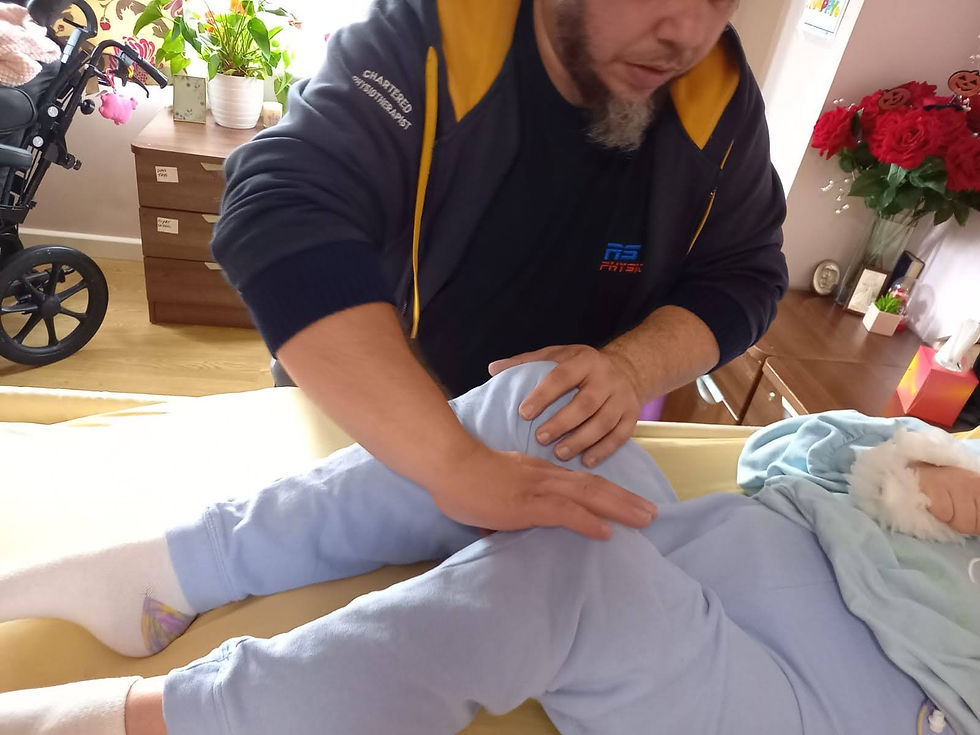Conquering Post-Stroke Fatigue: Strategies for Recharging Your Energy!
- Pawel Ciecierski MSc Physiotherapy MCSP HCPCreg

- Feb 27, 2023
- 2 min read
Updated: Jul 23, 2023

Fatigue is a common symptom experienced by people after a stroke. It is estimated that up to 70% of stroke survivors experience fatigue, which can range from mild to severe and can affect a person's ability to perform daily activities.
There are several factors that can contribute to fatigue after a stroke. These include:
1. Physical changes: Stroke can cause damage to the brain, affecting a person's motor function, leading to weakness, spasticity, and other physical changes. These changes can make it more difficult for a person to move around and perform daily tasks, leading to increased fatigue.
2. Cognitive changes: Stroke can also affect a person's cognitive function, including memory, attention, and processing speed. These changes can make it more difficult for a person to concentrate and stay alert, contributing to fatigue.
3. Emotional changes: Stroke can have an emotional impact on a person, leading to feelings of depression, anxiety, and stress. These emotional changes can also contribute to fatigue.
There are strategies that can help manage fatigue if you suffered stroke
- Rest: It is important to balance activity with rest and take breaks as needed throughout the day.
- Exercise: Regular physical activity can improve energy levels and reduce fatigue. A physical therapist can develop a safe and appropriate exercise program.
- Sleep: Getting enough sleep is crucial for managing fatigue. Establishing a regular sleep routine and creating a comfortable sleep environment are important.
- Pacing: Breaking activities into smaller, manageable tasks and pacing oneself throughout the day can be helpful.
- Support: Having a support system in place, including family, friends, and healthcare professionals, can provide assistance and encouragement.
It is essential if you experiencing fatigue after a stroke to discuss the symptoms with your healthcare provider. We can recommend appropriate strategies for managing fatigue and address any underlying health issues contributing to your fatigue.
References:
1. Mayo Clinic Staff. (2021). Post-stroke fatigue. Mayo Clinic. https://www.mayoclinic.org/diseases-conditions/stroke/expert-answers/post-stroke-fatigue/faq-20380028
2. Lerdal, A., Bakken, L. N., Rasmussen, E. F., Beiermann, C., & Ryen, S. (2011). The impact of fatigue on health-related quality of life in patients with chronic obstructive pulmonary disease. European Respiratory Journal, 38(2), 426-430.
3. Choi-Kwon, S., Han, S. W., Kwon, S. U., Kim, J. S., & Post-stroke Fatigue. (2005). Frontiers of Neurology and Neuroscience, 21, 173-183.





Comments